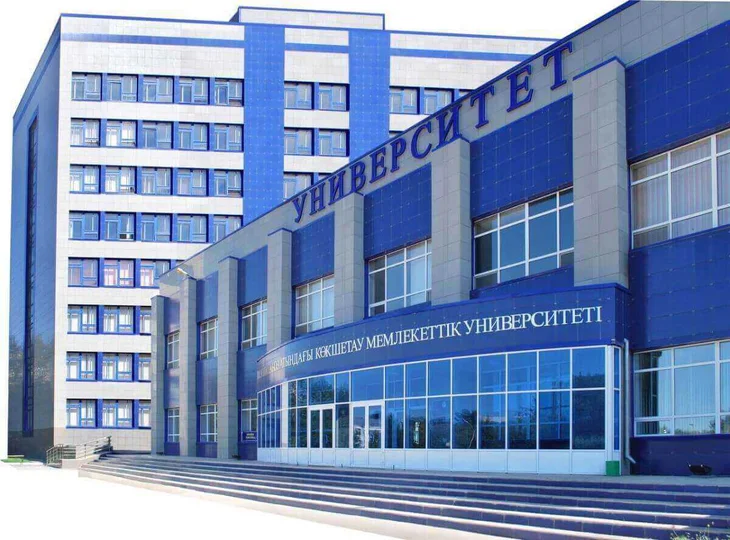Russian language and literature in schools with Russian and non-Russian languages of instruction

Educational program code
6В01708
Language of instruction
Russian
Learning level
Undergraduate
Duration of study
4 year
Specialized subjects
Russian language
Russian literature
Objectives of the educational program
- training teachers of the Russian language and literature of a new generation to teach in schools with Russian and non-Russian languages of instruction, who are able to apply professional knowledge in various educational organizations in accordance with the qualification characteristics, and who have professional competencies that meet the modern requirements of society
- the formation of students' theoretical knowledge about the patterns of development of the Russian language and literature on the basis of universal and professional competencies, the development of skills for their implementation in teaching activities in accordance with the updated content of education in the Republic of Kazakhstan
- upbringing of a highly moral, tolerant personality that respects universal, civil and national values
- development of professional and research skills that contribute to the self-improvement of the student's personality
- History of Russian literature of the 19th century
- Academic writing
- Russian oral folk art
- Education management and digitalization
- Inclusive education
- Criteria-based assessment technologies
- Morphology of the modern Russian language
- Word formation of the modern Russian language
- Physiology of the development of schoolchildren
- Methods of teaching the Russian language in schools with Russian and non-Russian languages of instruction
- Methods of teaching literature in schools with Russian and non-Russian languages of instruction
- Practical Russian language course
- Pedagogy
- Introduction to the teaching profession
- Pedagogical practice
- Theory and methodology of educational work
- Introduction to Philology
- History of Russian literature of the 20th century
- History of Russian literature of the 11th-18th centurieslanguage
- History of foreign literature of the 20th century
- Theory of literature
- General linguistics
- Kazakh literature
- Lexicology and phraseology of the modern Russian language
- Syntax of the modern Russian language
- Phonetics of the modern Russian language
- History of the Russian literary language
- Comparative grammar of the Russian and Kazakh languages
- Historical grammar of the Russian
- Stylistics and the basics of oratory
Learning outcomes and competencies
- Demonstrate the theoretical basis of knowledge in the field of human rights, based on advanced knowledge in the field of study; skills and abilities to protect the rights and interests of the child, the professional honor and dignity of the teacher, assess the social significance of the teaching profession, respect the civil rights of students; analyze trends in the social development of society; understand the importance of the principles and culture of academic integrity; apply basic social, economic processes and programs at a professional level
- Choose communication strategies in Kazakh, Russian and foreign languages for constructive dialogue in a multicultural and multi-confessional educational environment
- Demonstrate knowledge and skills in the field of psychological and pedagogical science for critical selection, evaluation and development of educational material in the Russian language and literature under the program of the updated content of education of the Republic of Kazakhstan using digital educational resources
- Apply in practice the technology of criteria-based assessment (PE, SER, SOC, etc.) and specialized teaching methods for students with special educational needs; demonstrate knowledge in the field of pedagogical management, apply skills and abilities to carry out pedagogical monitoring
- Organize the educational process at school as an education manager, carrying out pedagogical monitoring based on demonstrating knowledge of regulatory and legal documents in the field of education, developing a system of pedagogical meters and indicators, predicting the effectiveness of the educational organization, etc.)
- Know the methods of scientific research, academic writing and apply the basics of theoretical concepts of linguistics and literary criticism; characterize the main stages of the periodization of language and literature, the content of the sections included in the secondary school curriculum in accordance with the updated content of education
- Demonstrate mastery of spelling, orthoepic, lexical, grammatical and stylistic norms of the Russian language; parse words, sentences, texts, conduct research, analyze and evaluate research results using innovative technologies; own the basic methods and techniques of various types of oral and written communication in Russian; have the skills of a culture of systemic scientific thinking, creative scientific, innovative and educational activities
- To form the features inherent in literature as the art of the word, use literary terminology, analyze literary texts of different genres, summarize and compare the material; determine the specifics of artistic methods and creative systems of authors; apply traditional and innovative technologies in an optimal combination in research and teaching and methodological work; in organizing the teaching of philological disciplines at a high theoretical and methodological level; improve the pedagogical skills of a teacher of the Russian language and literature in the context of updating the educational program and introducing a system of criteria-based assessment